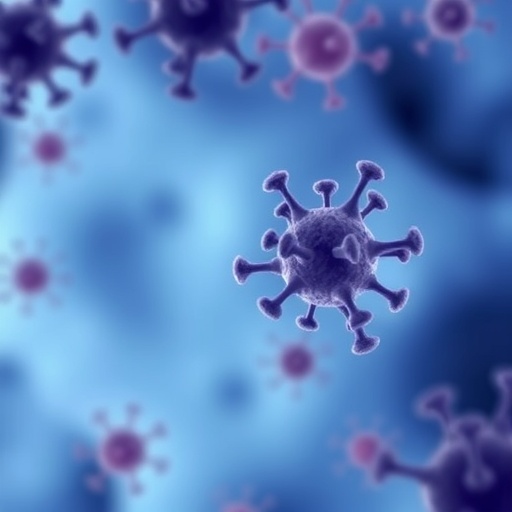In the ever-evolving landscape of cancer research, hepatocellular carcinoma (HCC) continues to impose a significant global health burden due to its high mortality and limited therapeutic options. Recent scientific advancements have spotlighted the intricate molecular mechanisms that govern cancer progression, particularly the role of post-translational modifications (PTMs). These chemical alterations occurring after protein synthesis profoundly impact protein function, stability, and interactions, ultimately influencing oncogenic pathways. A breakthrough study published in Medical Oncology presents a compelling exploration of PTMs in HCC, unraveling their mechanistic roles and exposing novel avenues for targeted therapy that could revolutionize patient outcomes.
Hepatocellular carcinoma, the predominant form of liver cancer, presents a complex pathophysiological profile. It arises primarily due to chronic liver damage from viral infections, alcohol abuse, or metabolic disorders, which foster an environment of sustained inflammation and cellular stress. Within this hostile microenvironment, PTMs act as critical modulators of cellular behavior. The study meticulously dissects diverse PTMs such as phosphorylation, ubiquitination, acetylation, and methylation, emphasizing their dynamic interplay in regulating oncogenic signaling networks in HCC cells.
Phosphorylation, the attachment of phosphate groups to specific amino acid residues, remains one of the most extensively studied PTMs due to its reversible nature and significant impact on protein activity. In HCC, dysregulated phosphorylation cascades frequently activate pathways like PI3K/AKT/mTOR and MAPK/ERK, which drive uncontrolled proliferation and survival of malignant hepatocytes. The research highlights emerging kinase inhibitors that precisely target these aberrant phosphorylation events, offering promising therapeutic strategies with enhanced specificity and reduced toxicity.
The ubiquitin-proteasome system surfaces as another pivotal PTM landscape in HCC. Ubiquitination tags proteins for proteasomal degradation or modulates their interactions, orchestrating protein turnover and signaling fidelity. Aberrations in this system disrupt cellular homeostasis, fostering oncogenesis through stabilization of oncogenes or degradation of tumor suppressors. The article delves into the potential of deubiquitinase enzymes as druggable targets, capable of restoring balance within aberrant ubiquitin signaling axes, thus stalling tumor progression.
Acetylation and methylation, modifications commonly associated with epigenetic regulation, also emerge as critical determinants in HCC pathobiology. These PTMs affect histone proteins and various transcription factors, thereby influencing chromatin remodeling and gene expression patterns fundamental to cancer cell plasticity and immune evasion. The nuanced understanding presented reveals how enzymes mediating acetyl and methyl group addition or removal could be leveraged to reset dysregulated epigenetic landscapes in HCC, providing an alternative front in battling chemoresistance and metastasis.
In addition to delineating individual PTMs, the study underscores the significance of PTM crosstalk—how these modifications synergize or antagonize each other to finely tune protein functions. This interdependence generates a complex regulatory network that cancer cells exploit for survival and growth under hostile conditions. Advanced analytical techniques such as mass spectrometry and CRISPR-mediated gene editing have been instrumental in mapping these interactions, paving the way for multi-targeted therapies that simultaneously disrupt several oncogenic nodes.
The therapeutic potential discussed extends beyond conventional drug development. The study explores innovative modalities including PTM-specific monoclonal antibodies, synthetic peptides mimicking or blocking modification sites, and RNA-based interventions aimed at modulating PTM-related enzyme expression. These approaches exemplify the frontier of personalized medicine, where targeting the PTM machinery in individual tumors could yield unprecedented efficacy and durability in treatment responses.
Importantly, the research acknowledges the challenges ahead in translating these molecular insights into clinical practice. The heterogeneity of HCC, both inter-patient and intra-tumoral, complicates the identification of universal PTM biomarkers and therapeutic targets. The article advocates for integrative biomarker discovery platforms that combine proteomic, genomic, and transcriptomic data to stratify patients and tailor PTM-based therapies accordingly, enhancing precision oncology efforts.
Moreover, the safety and off-target effects of PTM-targeting agents remain critical considerations. Given the ubiquity and reversibility of these modifications in normal physiology, selective targeting requires exquisite molecular discrimination to avoid unintended systemic toxicities. The study points to the ongoing development of next-generation drug delivery systems and inducible gene editing technologies designed to maximize therapeutic windows and minimize adverse effects.
The interplay between PTMs and the tumor microenvironment also receives considerable attention. Modifications of key immune regulators influence the recruitment and activity of tumor-infiltrating lymphocytes and macrophages, shaping immune evasion and resistance mechanisms. By manipulating PTMs, it may be possible to reprogram the immunosuppressive milieu that characterizes HCC, thereby enhancing the efficacy of immunotherapies such as checkpoint inhibitors.
Beyond therapy, PTMs hold promise as diagnostic and prognostic biomarkers. Alterations in PTM patterns detected in circulating tumor proteins or extracellular vesicles could serve as minimally invasive indicators of tumor stage, aggressiveness, or therapeutic response. The article envisions the integration of PTM profiling into routine clinical workflows, enabling dynamic disease monitoring and adaptive treatment strategies.
The study’s comprehensive examination of PTMs illuminates a paradigm shift in understanding hepatocellular carcinoma—moving from solely genetic mutations and transcriptional changes to a more holistic view that encompasses multifaceted protein regulation. This integrative perspective not only enriches our grasp of tumor biology but catalyzes the development of innovative treatment modalities that attack cancer through previously underexplored molecular mechanisms.
In conclusion, the investigative insights presented herald a new dawn in HCC research and therapy. By harnessing the mechanistic subtleties of post-translational modifications, scientists and clinicians are now poised to devise targeted interventions that disrupt cancer’s molecular circuitry with unprecedented precision. As this exciting frontier continues to unfold, it equips the oncology community with powerful tools to confront one of the deadliest cancers, ultimately steering us closer to durable remission and improved survival for patients worldwide.
Subject of Research: Post-translational modifications and their mechanistic roles in hepatocellular carcinoma
Article Title: Post-translational modifications in hepatocellular carcinoma: mechanisms and therapeutic potential
Article References:
Qin, J., Zhu, W., Yang, Z. et al. Post-translational modifications in hepatocellular carcinoma: mechanisms and therapeutic potential. Med Oncol 42, 524 (2025). https://doi.org/10.1007/s12032-025-03079-4
Image Credits: AI Generated




